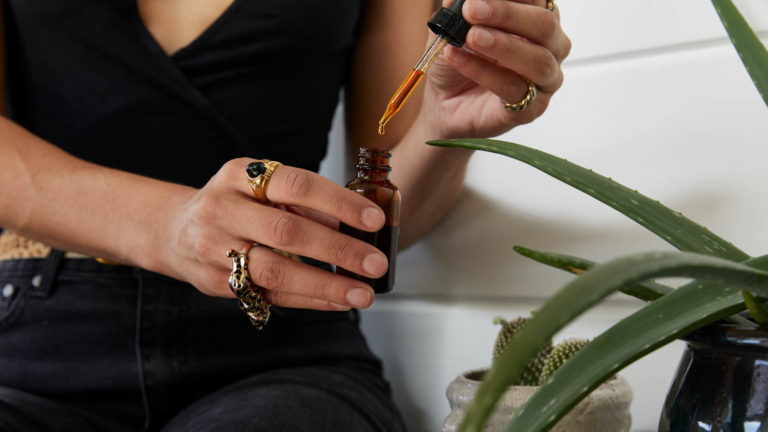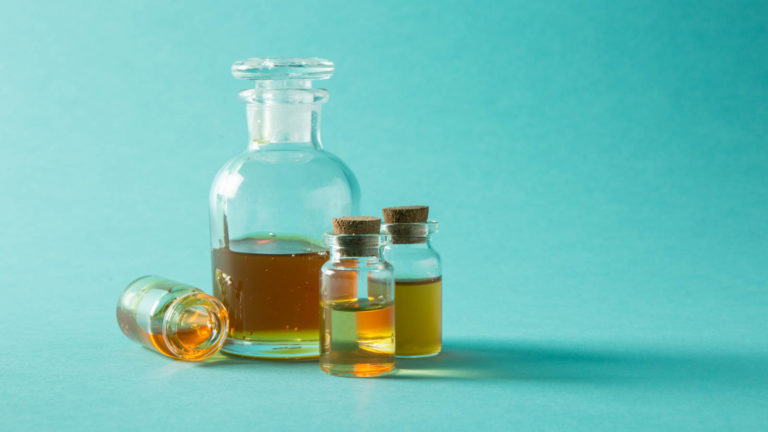In South Dakota, cannabidiol (CBD) derived from hemp is still an illegal substance, leaving many residents wondering which state regulations they should be aware of and how they match up to current federal laws surrounding CBD.
South Dakota's CBD laws are especially strict, but state regulations allow somewhat complicated legal exceptions for certain medical CBD products such as Epidiolex, the pharmaceutical-grade CBD oil approved by the Food and Drug Administration (FDA) and manufactured by GW Pharmaceuticals. Despite the recent federal legalization of industrial hemp, South Dakota has mostly refrained from updating its legislation to accommodate federal changes.
What is CBD?
CBD is a non-intoxicating cannabinoid found in cannabis, and the second-most-prominent in the plant after THC, which is largely responsible for the marijuana high. CBD can be extracted from marijuana or hemp plants. CBD has a wide range of potential therapeutic benefits, including anti-inflammatory, analgesic, anti-anxiety and seizure-suppressant properties. Most cannabis strains on the market today contain small amounts of CBD, especially compared with THC. Now that the cannabinoid is becoming more popular, a number of high-CBD strains have popped up in recent years.
 Photo by: Gina Coleman/Weedmaps
Photo by: Gina Coleman/WeedmapsImage lightbox

CBD elicits effects on the body through a range of biological pathways, notably cannabinoid receptors, which cannabinoids bind to so they can be broken down and dispersed by enzymes. Current research suggests that the benefits of CBD are achieved when the cannabinoid activates multiple receptor pathways rather than just one. This may also account for CBD's wide range of potential therapeutic uses.
Why is CBD sometimes illegal?
Hemp strains don't produce enough of the cannabinoid THC to cause intoxication, but all types of cannabis, including hemp, were considered illegal under the 1970 Federal Controlled Substances Act. The legislation swept all cannabis under the Schedule 1 umbrella, which defined cannabis as a substance with a high potential for abuse, no accepted medical use, and a likelihood for addiction.
The 2018 Farm Bill legalized hemp cultivation and created a clear pathway to remove some cannabis from Schedule 1 status by creating a legal distinction between hemp and marijuana. Under the new legislation, hemp is classified as cannabis that contains less than 0.3% THC by weight, while marijuana is classified as cannabis that contains more than 0.3% THC. As a result, hemp-derived CBD was descheduled by the bill, but because marijuana is categorized as a Schedule 1 substance, CBD that is derived from the marijuana plant is still considered federally illegal. While hemp is now considered an agricultural commodity under the 2018 Farm Bill, it still must be produced and sold under regulations that implement the bill. The USDA has yet to create these regulations.
 Photo by: Gina Coleman/Weedmaps
Photo by: Gina Coleman/WeedmapsImage lightbox

The Farm Bill also endowed the FDA with the ability to regulate CBD's labeling, therapeutic claims, and presence in foods or drinks. Despite the Farm Bill's passage, the FDA has issued a directive that no CBD, not even hemp-derived, may be added to food or beverages or marketed as a dietary supplement. As time passes, the FDA has begun re-evaluating that stance on CBD products but has yet to revise rules or specifically regulate CBD products. The FDA's slow movement has created further confusion on the state level.
The FDA has historically been strict when it comes to health claims or content that could be understood as medical advice — and makes no exception for CBD.
Hemp production and sale, including its cannabinoids and CBD specifically, remain tightly regulated federally. The Farm Bill provides that individual states may also regulate and even prohibit CBD cultivation and commerce. States may attempt to regulate CBD in food, beverage, dietary supplements, and cosmetic products independently of the FDA's rules.
South Dakota CBD laws
Despite federal legalization of hemp and hemp-derived CBD, all forms of hemp, hemp oil, CBD oil, and other CBD products remain illegal in South Dakota. On Jan. 30, 2019, the state House of Representatives introduced House Bill 1191 to legalize industrial hemp. The bill passed both the House and Senate, but was vetoed by Republican Gov. Kristi Noem on March 12, 2019.
Republican Attorney General Jason R. Ravnsborg released a statement on March 25, 2019, to clarify that “current South Dakota law makes industrial hemp illegal and all forms of CBD oil illegal.” Ravnsborg's statement added that the FDA-approved CBD drug Epidiolex, with a prescription from a licensed physician, is the only permitted form of the cannabinoid in the state.
 Photo by: (Gina Coleman/Weedmaps)
Photo by: (Gina Coleman/Weedmaps)Image lightbox

South Dakota CBD possession limits
Possession of non-FDA-approved CBD in South Dakota is illegal, but under state law, the penalty for possession differs from that of marijuana or THC products. In 2017, South Dakota legislature passed SB 95, which reclassified CBD from Schedule 1 to Schedule 4 status. South Dakota law defines Schedule 4 drugs as having “low potential for abuse, currently accepted medical use in the United States, and, limited physical dependence or psychological dependence liability or potential.” Unlawful possession of a Schedule 4 substance in the state is a Class 6 felony, which warrants a maximum penalty of two years in prison and a $4,000 fine.
Where to buy CBD in South Dakota
As of 2019, there is no option for the legal purchase of CBD in South Dakota other than physician-prescribed Epidiolex purchased through a pharmacy. If you live in South Dakota, remember that purchasing and possessing CBD from an online shop is illegal under state law.
How to read CBD labels and packaging
The 2018 Farm Bill shifted oversight from the U.S. Department of Justice (DOJ) to the FDA. As the FDA slowly begins to make new regulations for CBD products, the market remains largely buyer beware. Still, the agency warns that even regulations in flux don't excuse companies for making illegal claims on their labeling. Most reputable CBD producers will typically include the following information on their CBD product labels:
- Amount of active CBD per serving.
- Supplement Fact panel, including other ingredients.
- Net weight.
- Manufacturer or distributor name.
- Suggested use.
- Full-spectrum, broad-spectrum, or isolate.
- Batch or date code.

